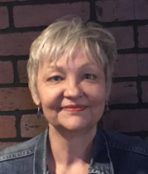Tracking, Mapping, and Modeling Mobility Changes and Business Recovery Amid the COVID-19 Pandemic in the Pacific Northwest Region of the United States
PI: Haifeng (Felix) Liao (UI), hliao@uidaho.edu
AMOUNT & MATCH: $10,000 from PacTrans; $10,000 Match
PERFORMANCE PERIOD: 6/1/2020 – 5/31/2021
STATUS: Completed
CATEGORIES: COVID-19
DESCRIPTION: Given the lack of vaccines or an effective cure, the ongoing COVID-19 outbreak has prompted state and local governments in the U.S. to implement a range of behavioral, clinical, and other non-pharmaceutical interventions to mitigate the pandemic. As of April 7, 2020, all four states in the Pacific Northwest (PNW), i.e., Alaska, Idaho, Oregon, and Washington, have urged residents to stay at home. Other travel and work restrictions, most notably limiting large-group gatherings and the closure of restaurants, bars, and schools, have also been imposed. Using data on smartphone GPS signals (Warren and Skillman 2020), it is inferred that from March 1 to April 9, people’s daily mobility might have plummeted by 97.3% in King County, Washington. However, given the substantial economic and social costs of these restrictions, mobility confinement strategies are likely to change on a location-by-location and day-to-day basis, especially after an increased testing capacity is available (Chen et al. 2020), and business and economic recovery will become of greater concern. Against this backdrop, the overarching goal of this project is to compile a series of “perishable” datasets and to track and map cases of COVID-19, mobility changes, and business recovery in the PNW region amid the pandemic. We also aim to better understand the role played by travel restrictions and mobility changes in mitigating the ongoing spread of COVID-19. Additionally, in collaboration with the COVID-19 Geographic Information Systems (GIS) Hub at ESRI, a leading software company in the GIS industry, we will create an interactive web-based dashboard called PacTrans PNW-COVID-19 Map to more effectively communicate information on the rapidly changing situations in the PNW to the public.


